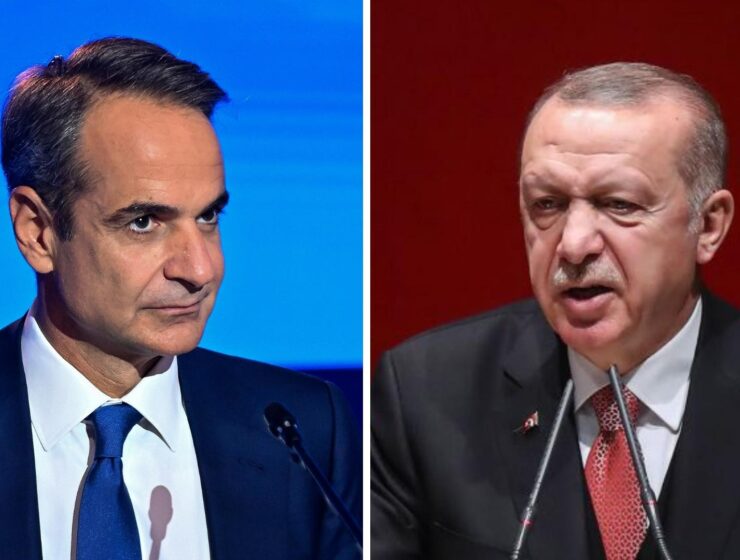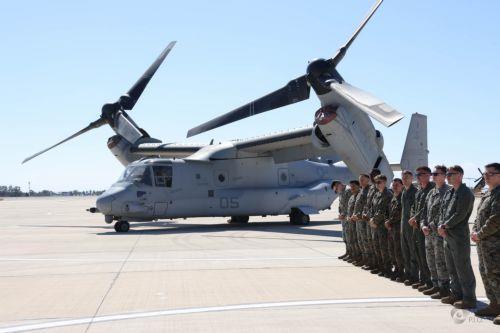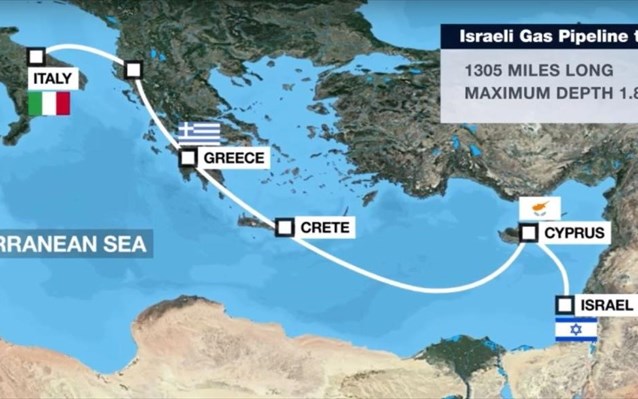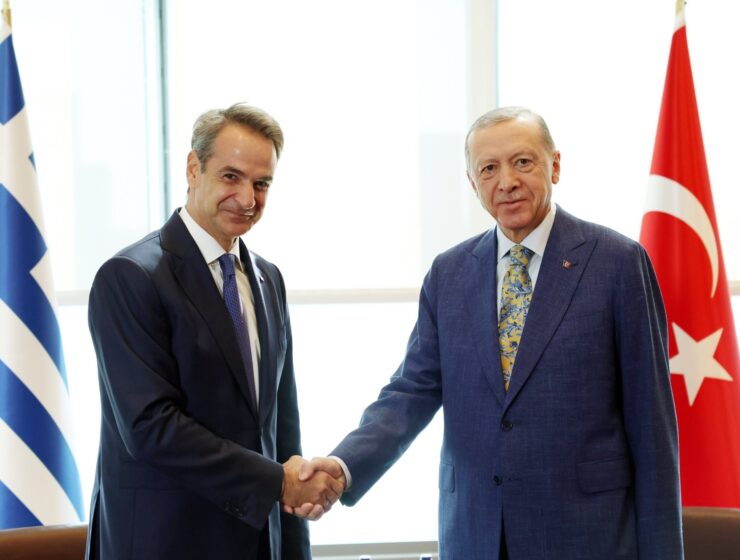Renewed tensions between Greece and Turkey threaten planned diplomatic talks. Turkey’s assertive actions in the Aegean and Eastern Mediterranean, including challenging Greek sovereignty and maritime boundaries under its “Blue Homeland” doctrine, are jeopardizing a potential summit between their leaders. These actions, coupled with disagreements over the interpretation of existing agreements and Turkey’s stance on the status of Greek islands, are creating a difficult environment for negotiations. Meanwhile, both nations are also navigating the evolving foreign policy landscape under the Trump administration.
Tag: Eastern Mediterranean
Greece and Cyprus are blocking the lifting of EU sanctions on Syria, seeking guarantees that sanctions can be reimposed if illegal actions are taken with Turkey to divide Cyprus’s Exclusive Economic Zone. Turkey plans to establish a similar agreement with Syria as it did with Libya in 2019, raising concerns over potential encroachments in the eastern Mediterranean.
Turkey has adopted a more assertive stance by issuing warnings concerning its maritime rights around…
Greece has signed a new military cooperation agreement with Egypt and a trilateral action plan with Cyprus to enhance defense collaboration. The agreements focus on joint training, air missions, electronic warfare, and regional security efforts. These initiatives aim to strengthen military ties and promote stability in the Eastern Mediterranean.
Turkey has unveiled plans to invest €350 million in expanding the Aksaz naval base, with NATO backing, to enhance its capacity for larger vessels and boost its strategic presence in the eastern Mediterranean.
Greece has positioned four navy ships to potentially provide humanitarian aid to Lebanon and Gaza, in response to pressing needs in the region. National Defense Minister Nikos Dendias emphasized Greece’s willingness to step in following unsuccessful efforts by the U.S. military to create a secure supply route into Gaza. With Cyprus serving as a logistical hub, Greece is prepared to deliver essential supplies like food, water, and medication to support Palestinian communities after a recent cease-fire agreement. Despite limited resources, Greece remains committed to fostering stability and prosperity in the region.
The U.S. Air Force is assessing upgrades to Cyprus’ Andreas Papandreou Air Base to enhance its role as a humanitarian staging post for Middle East operations. Situated near Lebanon, the base has historically been vital for evacuations and aid delivery. Proposed improvements include runway expansions, radar systems, and facilities for U.S. air assets, reflecting deepening U.S.-Cyprus military ties and the island’s strategic importance in the Eastern Mediterranean.
Greece plans to acquire two submarines equipped with ballistic missiles, marking a major shift in the Eastern Mediterranean’s strategic landscape. This move, which has raised concerns in Turkey, enhances Greece’s deterrence and preemptive strike capabilities, offering a new level of defensive autonomy and reshaping regional power dynamics.
The Hellenic Navy has inaugurated four Island-class coastal patrol boats, highlighting Greece’s commitment to enhancing its naval capabilities in the Aegean and Eastern Mediterranean. These refurbished vessels, acquired from surplus US Coast Guard inventory, replace older patrol boats and mark a significant advancement in the Greek naval fleet.
Turkey’s accession to the European Union (EU) could have significant implications for the situation in the Eastern Mediterranean, especially regarding the natural gas and oil deposits in the region.
Turkey’s EU membership could contribute to enhancing political stability in the region, increasing the possibility of a more coherent and cooperative policy approach to energy resources. The EU aims to resolve disputes between member states through dialogue and diplomacy, which could reduce tension in the region and create a more secure and conducive environment for energy investment.
President Joe Biden has authorized the Republic of Cyprus to receive U.S. defense articles and services, a move aimed at modernizing Cyprus’ military and enhancing regional security. This decision, expected to strengthen ties between the two nations, comes amid rising tensions in the Eastern Mediterranean and highlights Washington’s strategic focus on the region.
Andreas Orphanidis is a columnist for Politis and a professor and anthropologist at Philips University.…
Turkey argues that islands should not have full rights to maritime zones, including EEZs. This is especially relevant in the Aegean and Eastern Mediterranean, where numerous Greek islands lie close to the Turkish coast. UNCLOS, on the other hand, recognizes islands as having the same rights to EEZs and continental shelves as mainland territory, unless specific geographic features limit them.
Cyprus’s President Nikos Christodoulides met with Lebanon’s newly elected President Joseph Aoun in Beirut on…
Turkey’s recent military exercise, Mavi Vatan-2025 (Blue Homeland 2025), has been interpreted as a clear…
Greece has completed its acquisition of 24 Rafale fighter jets, significantly bolstering its air power in the Aegean and Eastern Mediterranean.
Israeli President Isaac Herzog is scheduled to visit Cyprus on Thursday, according to sources from…
Greece and Israel have rekindled discussions on the EastMed natural gas pipeline, exploring a scaled-down version focusing on transport to Cyprus and potential LNG export. This renewed interest comes as Europe seeks to diversify energy sources and the Eastern Mediterranean gains strategic importance. The project, alongside the EuroAsia Interconnector, aims to strengthen regional energy ties and secure Israel’s energy future
Greece faces a pivotal year as the government prepares for the presidential election, with a choice that could shift the nation’s political balance between the centre-right and centre-left. Amidst this, constitutional reforms, party congresses, and potential government reshuffles add to the domestic agenda. On the international stage, Greek-Turkish relations remain a focal point, with dialogue on EEZ disputes, confidence-building measures, and the Cyprus issue taking center stage.
Tensions rise ahead of a key meeting between Greek PM Mitsotakis and Turkish President Erdoğan as Turkey’s pro-government *Daily Sabah* criticizes Greece and Cyprus for “confrontational” strategies in the Eastern Mediterranean, contrasting their approach with Turkey’s maritime agreements.



















